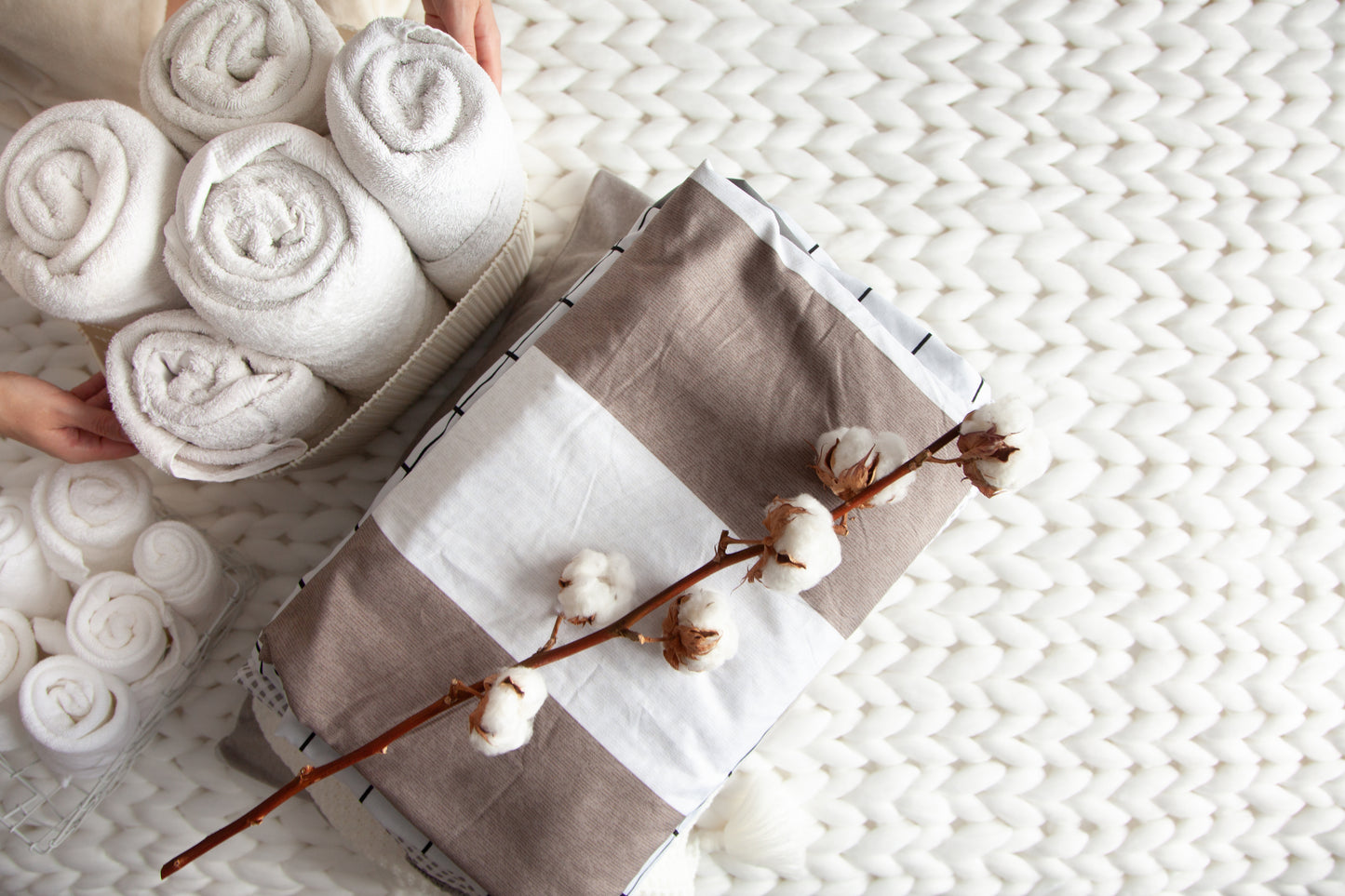
Ethical living has never been trendier, but did you know that your wardrobe may harbour some dirty secrets?
Our fashion choices can have an enormous impact on people and the planet. Fast fashion is growing… fast. We're continually bombarded by marketing attempting to lure us in to purchase the latest trends and keep up with the influencers. These low prices and pressure to buy a new wardrobe every two weeks have considerable costs to human life and the environment. In fact, the global fashion industry contributes more to climate change than international aviation and shipping combined.
It's time for a rethink. Sustainable wardrobe choices don't need to be boring, and they don't need to be expensive either. Choosing classic statement pieces that can be combined to create multiple stylish looks is an investment in you and the planet. Slow fashion is the way forward.
Instead of chemicals, we must rely on the earth's natural power and make clothing from 100% environmentally materials – natural fibres.
What are natural fibres?
Natural fibres are made from natural materials originating from plants, animals, or minerals. Silk and wool are popular examples of animal-based fibres, while cotton, linen, and jute are plant-based. Burning fossil fuels is not generally required to produce these materials. Natural fibres are generally carbon-neutral and biodegradable, but their production can be resource-intensive.
What are synthetic fibres?
Synthetic fibres are artificial materials generated by burning fossil fuels, contributing significantly to global carbon emissions and accelerating the climate crisis. The textile industry began creating synthetic fibres as cheaper and more easily mass-produced alternatives to natural fibres. Microfibers like acrylic, nylon, polyester, or rayon are popular synthetic fabrics that have dire consequences for the environment.
Why should you choose natural fibres?
Natural fibres are popular for various reasons as the fabric is generally more environmentally friendly and durable.
Absorbent. Natural fibres have an incredibly high absorbency, as the fibres, both plant and animal, have a strong affinity for water. They are ideal for crafting high-quality bed sheets and towels that are built to last for a comfy and eco-conscious household.
Eco-friendly. Natural fibres typically generate a low environmental impact than synthetic ones as their production does not use so many chemicals. However, some natural fibres are less sustainable than others become some plants require more water, e.g. cotton.
Durable. The structure of cellulose, which makes up natural materials, makes most plant-based fibres are robust and long-lasting. Animal-based fibres, like silk and wool, are also strong.
Kind to Skin. Materials such as cotton, linen, or hemp are particularly friendly to the skin and even suitable for allergy sufferers - they are hypoallergenic. Since natural fibres usually have better air permeability and breathability, bacteria are less likely to accumulate.
Protecting the natural world and living responsibly doesn't have to be complicated. Your best shot at slowing down your wardrobe should be natural fabrics, especially reused and recycled ones. Sustainable style is timeless and worth the investment.








